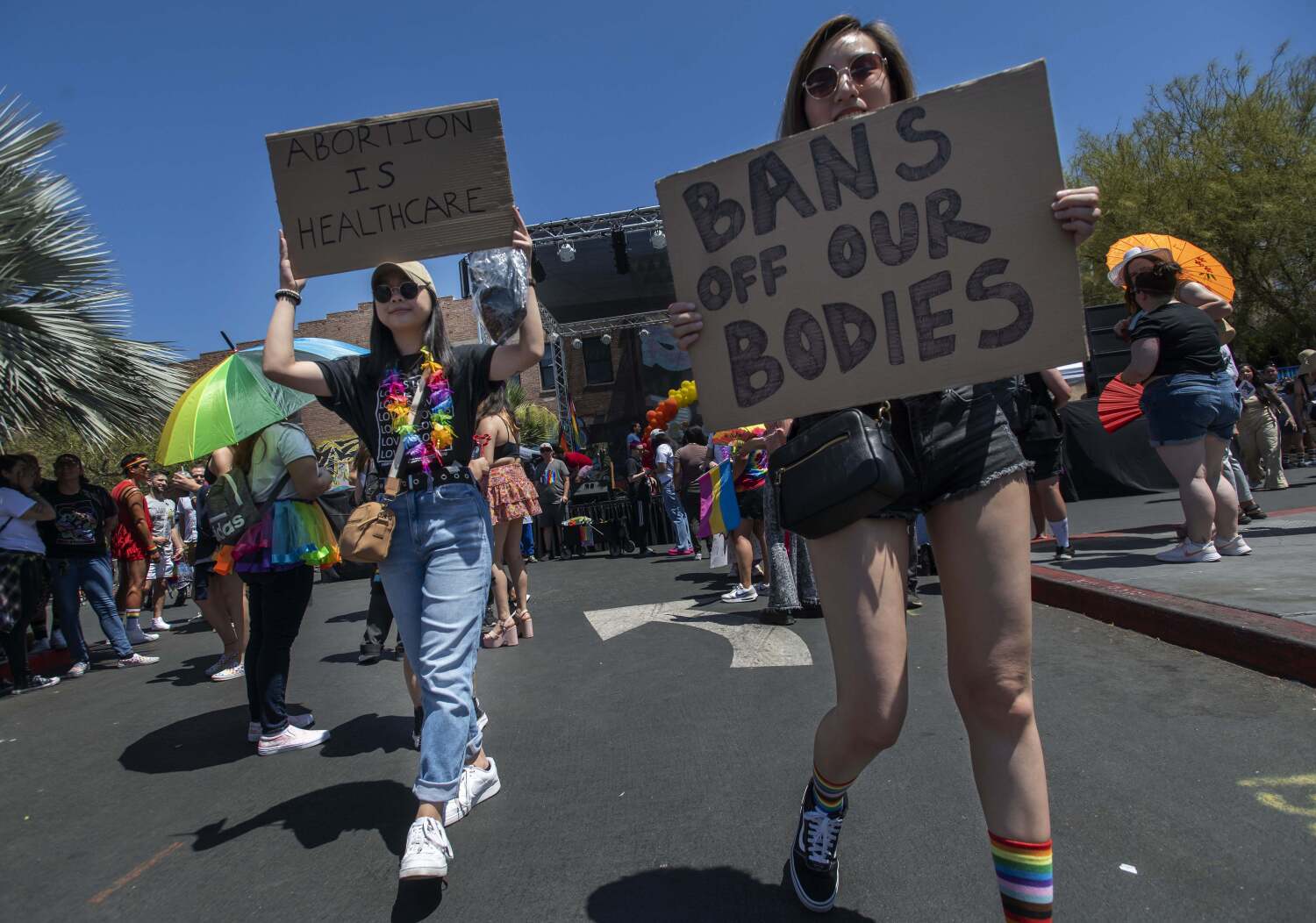Litman: Students will deride Supreme Court docket’s Dobbs opinion
[ad_1]

The Supreme Court docket’s choice in Dobbs vs. Jackson Girls’s Well being Group is a double catastrophe. Initially, overturning Roe vs. Wade may have a devastating impression on the lives of Individuals, particularly ladies of childbearing age. Second, it’s sure to be disparaged — even derided — by authorized students and to lead to a plunge within the court docket’s already fragile public standing.
As many observers have famous because the draft choice leaked, a evident drawback with Justice Samuel A. Alito Jr.’s opinion is its singling out of abortion rights as a constitutional stepchild primarily based on the truth that abortion was not protected on the founding, and certainly it was generally criminalized.
It’s like capturing fish in a barrel to level out that this historic evaluation is not possible to sq. with the court docket’s recognition of different unenumerated and beforehand criminalized rights that the opinion insists it doesn’t put in danger — for instance, same-sex and interracial marriage, using contraception and fascinating in gay intercourse.
If abortion is a constitutional orphan as a result of earlier generations of Individuals criminalized it, then how might the court docket proceed to acknowledge any of those different rights?
Inevitably, Alito’s reasoning has gotten pummeled from the left and the fitting. The joint dissent by Justices Stephen G. Breyer, Elena Kagan, and Sonia Sotomayor has a area day mocking Alito’s incoherent remedy of unenumerated rights.
And from his personal aspect, the far-right flank of judicial (and American) thought, Justice Clarence Thomas’ concurring opinion takes the apparent subsequent step: The court docket ought to now rethink — learn: overturn — the entire line of unenumerated rights jurisprudence.
Evaluating the leaked draft of the choice with the ultimate product, we will discern the one argument that Alito and the remainder of the bulk have proffered to attempt to bolster the rivalry that abortion may be pulled from the court docket’s unenumerated-rights jurisprudence with out bringing the entire development down. It’s as follows: “What’s distinctive about abortion,” Alito writes, is that it ends in the termination of a “potential life.”
And so it does. That’s the core issue that makes abortion doctrine so vexing — each the person and society have very important pursuits at stake. However Alito’s leap from that truism to the conclusion that the fitting to abortion deserves no constitutional safety rests on an embarrassing flaw in authorized reasoning. It’s a non-sequitur to say that the existence of a state or societal curiosity in fetal life means there isn’t a particular person curiosity in whether or not to carry a fetus to time period. A countervailing state curiosity says precisely nothing concerning the existence of a person proper.
It’s one other deep distortion to say, because the Dobbs opinion does, that Roe, and the later choice Deliberate Parenthood vs. Casey, inadequately protected “potential life.” Each choices positioned substantial weight — many would argue extreme weight — on fetal safeguards. That’s the reason over time the court docket upheld a protracted collection of abridgements of the fitting to abortion, reminiscent of spousal notifications and ready durations.
The very level of the analyses in Roe and Casey was to attract the road between permissible and impermissible “burdens” on the choice to maintain or terminate a being pregnant. Alito derides Casey’s admittedly amorphous time period “undue burden,” however the job of finding out what’s or isn’t undue in tempering a person proper is a commonplace of constitutional legislation, and Casey’s framework labored. It created a secure scenario, till President Trump’s court docket appointees put stars within the eyes of antiabortion state legislators who began passing excessive challenges to Roe.
Furthermore, Dobbs’ insistence that Roe forbade states “to treat the destruction of a ‘potential life’ as a matter of any significance” is flatly incorrect. As an alternative, it’s Dobbs that merely refuses to treat as vital one of many two important pursuits within the abortion problem. As of Friday, even probably the most extreme abridgement of the fitting to an abortion have to be sustained “if there’s a rational foundation on which the legislature might have thought that it could serve reliable state pursuits.”
“Rational foundation” is the best normal to satisfy to disclaim a proper. It places ladies’s management over their very own our bodies on the identical degree as the fitting to play pool at 4 a.m.
Justice Brett M. Kavanaugh’s separate concurrence within the Dobbs choice deserves a particular point out for its blithe assurance that “the Court docket’s choice immediately correctly returns the Court docket to a place of judicial neutrality on the difficulty of abortion.”
That’s argle bargle, as Kavanaugh’s idol Antonin Scalia would possibly put it. The vaporization of practically 50 years of elementary constitutional protections for ladies, and the sudden empowerment of crimson states to vie for which ones can enact probably the most draconian restrictions, together with making abortion a felony, shouldn’t be an act of judicial neutrality.
In the long run, the Dobbs opinion affords nothing remotely persuasive for its dedication that Roe was “egregiously incorrect.”
The sober evaluation of the Dobbs dissenters is probably the most believable rationalization for the tragic incorrect flip the court docket has taken: The reversal of a long-recognized constitutional proper is “primarily based on nothing greater than the brand new views of recent judges. The bulk has overruled Roe and Casey for one and just one purpose: as a result of it has all the time despised them, and now it has the votes to discard them.”

